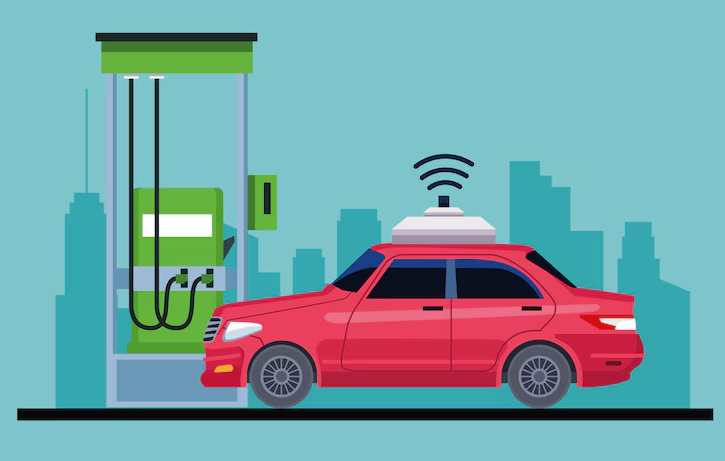Mandatory Induction Of Compressed Natural Gas (CNG) Or Electric Vehicles By Aggregators And E-Commerce Entities In Delhi NCR

Introduction
In a major policy intervention targeting air pollution in the National Capital Region (NCR), the Commission for Air Quality Management (CAQM) has issued binding directions mandating that all new fleet additions by motor vehicle aggregators, delivery service providers, and e-commerce platforms in Delhi-NCR be exclusively limited to compressed natural gas (CNG) or electric vehicles (EVs). The move is expected to significantly reduce vehicular emissions in one of the world’s most polluted urban agglomerations.
Table of Contents
Statutory Authority and Mandate
Invoking powers under Sections 12(1), 12(2)(v), and 12(2)(ix) of the Commission for Air Quality Management in National Capital Region and Adjoining Areas Act, 2021, the CAQM issued Direction No. 94 dated 03.06.2025. The Commission, a statutory authority constituted by the Ministry of Environment, Forest and Climate Change, has been tasked with formulating and enforcing regulatory measures to improve air quality across NCR and neighboring states.
Key Requirements Under the June 2025 Directive
The Commission’s direction applies to all aggregators, delivery service providers, and e-commerce entities operating with fleets of 25 or more vehicles. Salient features include:
- Three-Wheelers: Only CNG or electric autorickshaws can be added to operational fleets. This measure takes immediate effect.
- Two-Wheelers and Light Four-Wheelers: No further induction of conventional petrol or diesel vehicles in the category of 2-wheelers, 4-wheeler LCVs, and LGVs (N1 category up to 3.5 tonnes) will be permitted from January 1, 2026.
- Fleet Monitoring and Compliance: Entities must register and track their vehicles on a centralized web portal developed by the Transport Department of the Government of NCT of Delhi. Other NCR states (Haryana, Uttar Pradesh, Rajasthan) are directed to develop similar portals and frame comprehensive policies to mirror the implementation across high-density cities like Gurugram, Noida, Faridabad, and Ghaziabad.
Context and Rationale
Vehicular pollution accounts for a significant share of ambient air pollution in the NCR, particularly in winter months when meteorological conditions aggravate pollutant retention. Commercial vehicles owing to their higher utilization rates, greater mileage, and often lax maintenance disproportionately contribute to this burden.
Moreover, the rapid expansion of e-commerce and app-based logistics has led to a surge in last-mile delivery and urban freight traffic, further straining NCR’s air quality metrics. The Commission’s directive explicitly targets these high-impact vehicle segments to catalyze a systemic shift toward zero-emission mobility.
The policy is also aligned with the broader goals of the National Electric Mobility Mission Plan (NEMMP), the Faster Adoption and Manufacturing of Hybrid and Electric Vehicles (FAME) schemes, and state EV policies such as the Delhi Electric Vehicle Policy, 2020, which aim to achieve a cleaner transport ecosystem through demand-side incentives, scrappage policies, and infrastructure expansion.
Challenges and Industry Impact
This regulatory pivot necessitates early planning and procurement cycles for affected stakeholders. Aggregators and delivery service platforms must:
- Restructure procurement policies to favor electric and CNG models.
- Address infrastructure gaps such as charging stations, especially for two-wheelers and light delivery vehicles.
- Coordinate with OEMs (original equipment manufacturers) to ensure adequate supply and servicing.
- The directive also puts pressure on NCR state governments to harmonize their policies and develop enabling infrastructure, digital compliance systems, and financing mechanisms that can facilitate smooth transition across urban centers.
Conclusion
The CAQM’s June 2025 directive is a watershed moment in the regulatory push for sustainable urban mobility in India. With clear mandates, defined timelines, and statutory backing, the policy reflects an unambiguous intent to decarbonize commercial transportation in NCR. While implementation challenges remain, the directive offers a structured pathway to achieve cleaner air and sustainable logistics, backed by legal enforceability.
For more details, write to us at: contact@indialaw.in
By entering the email address you agree to our Privacy Policy.



